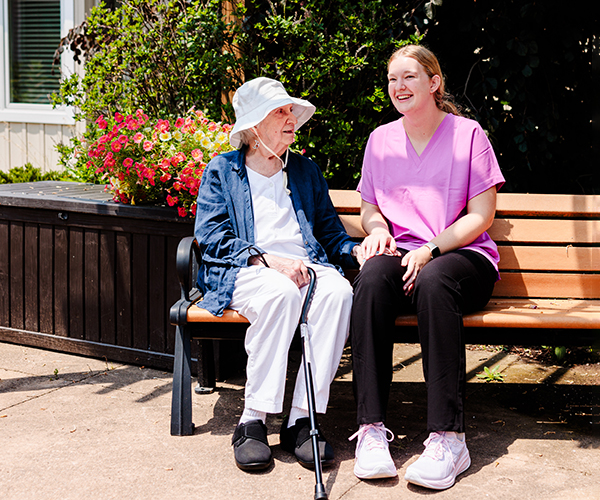Listening to the Beatles as I walked into Ben Turshen Meditation near Hingetown, I might have had preconceived notions about meditation.
But there are no hippie-dippy flourishes in the clean Detroit Avenue studio, brightened by walls of windows. A small retail counter inside called SLFMKR sells eco-friendly, cruelty-free and nontoxic products in the corner. Chairs and a couch sit beneath a neon light reading, “Close your eyes, change your life.”
With not a floor cushion in sight, I didn’t even end up crossing my legs.
Sinking into the couch to lead a two-day introductory course ($497) with four students, owner Ben Turshen explains Access Meditation, a “user-friendly” practice the seven-year meditation teacher created. Unlike the Beatles’ transcendental practices, often associated with finding god or altered-states, or mindfulness apps, which focus on stress, Turshen designed it around physiological tricks that de-excite the mind and promote relaxation.
It starts with five minutes of silent breathing, lightly in and out through your nose using your diaphragm. Then, closing your eyes, you spend 20 minutes repeating a non-word mantra, such as “ohm” — a sound with no meaning. A two-minute grace period returns you to everyday life. That’s it.
Practitioners claim weight loss, sobriety and even increased libido, but most clients are seeking relief from anxiety and insomnia or are striving for increased creative or professional performance.
Turshen started his practice in 2013 in New York City, where he worked with Michelin-starred chefs and professional athletes. Since moving to Cleveland, he’s introduced his program to the Cleveland Police Department and Solon High School.
“Many people find immediate relief. It depends on how much room you have for improvement,” says Turshen, a former attorney who turned to meditation to battle his insomnia, depression and anxiety.
The next morning, during my recommended first solo meditation at home, I’m kinda hoping for all of the above. I slept pretty well the night before, I think. I don’t know if it was the meditation. Frankly, the practice is pretty basic. Should I even go back?
Oh no, I lost the mantra. Turshen’s gonna be mad.
“There’s no such thing as failing in meditation — as long as you do it,” he assures me and the other students later that night before another guided meditation. “It’s perfectly OK to let your mind wander.”
On day two, Turshen shares tips for novice meditators, such as planning your first 60 days in advance.
A few weeks later, Turshen checks in with a phone call. I’d done my best, I tell him, but fitting a 27-minute meditation into my daily routine proved difficult.
Still, meditation, however sporadic, did help me through a busy month that included the holidays, getting engaged and moving. Even just focusing on my breathing during my most stressful moments gave me relief from anxiety levels I didn’t know I had.
“The hardest thing about meditation is incorporating it into your schedule,” says Turshen, who has taught more than 1,500 students how to meditate. “But eventually, like brushing your teeth, you get to a place where you would never consider not doing it.”




